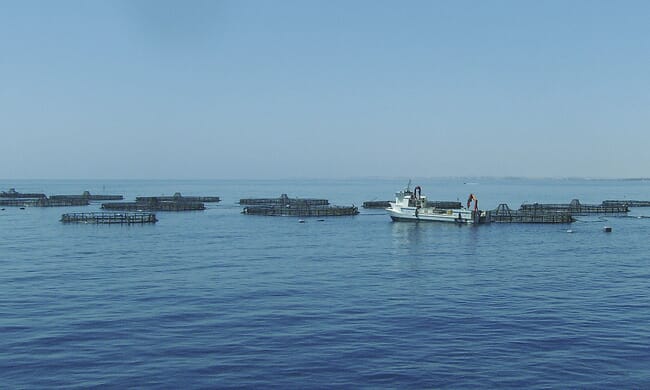
So argues the Federation of European Aquaculture Producers (FEAP) in a statement reacting to the recent publication of the FAO’s latest State of World Fisheries and Aquaculture (SOFIA) report.
SOFIA 2020, FEAP observes, notes that worldwide total aquaculture harvest in 2018 reached an all-time record of 114.5 million tonnes. Finfish production dominated (54.3 million tonnes), followed by algae (32.4 million tonnes), molluscs (17.7 million tonnes) and crustaceans (9.4 million tonnes).
However, the statement explains: “These impressive quantities should not mask the fact that the global annual growth rate of aquaculture has greatly declined over the last years. After decades of 6% to 10% interannual growth rates, 2018 has seen an increase of only 2.0% over 2017. Two decades ago Europe already walked that path in advance and, since the turn of the century, aquaculture production in almost all European countries has stagnated.”
FEAP says that factors contributing to this “worrying slowdown” include the adoption of broader environmental regulations, reduced availability of water and suitable production locations, increasing outbreaks of aquatic animal diseases and decreasing aquaculture productivity gains.
Political will
However, according to FEAP, governance is quickly becoming the key factor in deciding the rate of aquaculture growth.
As the statment concludes: “Nevertheless, FAO recognizes countries in which aquaculture production continues to grow, both developing (like Egypt, India, Indonesia, Viet Nam or Bangladesh) and developed (like Norway or Chile). The reasons for these exceptions are region dependent, but a trend is clear: in the twenty-first century aquaculture growth requires political will to promote appropriate policies, strategies, and private and public investment. Certainly, further technical issues have to be addressed on feeds, genetic selection, biosecurity, disease control, digital innovation and business developments. But from the European Union we can showcase that solving these hurdles is clearly not enough. Even the adoption of aquaculture spatial planning or ecologically sound technological innovation are necessary but never sufficient.
“European aquaculture producers can warn the rest of the world that the biggest challenge for the continued advancement of this sector is the adoption of appropriate general governance decisions aiming specifically to promote the development of aquaculture amid all other economic activities.
“An added problem is that public authorities and decision makers that are responsible for the creation and implementation of such general governance regulations will not read SOFIA 2020. Quite probably they will have never heard of it.”

